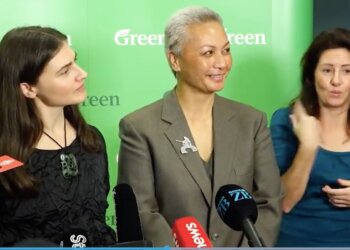The change in government is having a positive effect on investor sentiment.
See full article from One Roof:
By Tony Alexander
ANALYSIS: Each month I run a survey of existing residential property investors with the sponsorship of Crockers Property Management. The latest survey, which I ran last week, shows that the outcome of the election is having an impact on investor concerns and plans for their property investments.
First, I ask investors what things they are concerned about. On average since the survey started in 2021 soon after the change in investor tax rules was announced, 16% have said they are concerned about the loss of interest expense deductibility. The September reading was 16% but the latest is 13%, which is the lowest on record.
Anticipation that interest expense deductibility will be restored is being greeted positively by investors.
Second, the proportion who are looking at selling and say that they are doing so because of the March 2021 tax changes has averaged 23% since early-2021. The latest reading is a record low of just 10%, down from 20% in September and 32% as recently as June.
Third, the proportion who say they intend selling in order to purchase a different property has strongly changed. The average is 19%, the September reading was 18%, but the latest outcome is a record 28%. This is an important result and suggests anticipation of a change in the brightline test from ten years back to two years will cause more investors to put their properties up for sale. But they show a high propensity to take that money and buy again.
This means rising real estate turnover and good news for real estate agents. For first home buyers the outcome is mixed. There will be more properties to peruse, but more competition.
Fourth, the proportion of investors saying that they are concerned about tenant legislation has just fallen to a record low of only 9% from 15% in September and an average of 17% since June 2021. This likely reflects National’s plans to reintroduce no-cause lease terminations.
Investors clearly interpret the election outcome as reducing concerns for them and providing an opportunity to switch holdings around. But are they saying that overall they intend buying more – keeping in mind that my survey only covers existing investors, not new ones?
I can offset the proportion of investors saying they will buy versus the proportion looking to sell to create a net purchase intentions measure. Since mid-2021 a net 0% of existing investors on average have said they intend making a purchase. The September reading was a net 8% intending to sell and the latest reading is 6%.
This tells that that although investors welcome the changes likely to be made by the new government – subject to coalition negotiations – they are not jumping into the market as net buyers to a great degree as yet.
Having said that, other surveys I undertaken and anecdotal evidence from mortgage brokers and real estate agents show that many people are in fact planning to purchase property. Picking the timeframe for such actions is difficult and for many their desires may not be shared by their bank. Finance is still somewhat restricted to investors with banks preferencing first home buyers.
But if we get some substantial watering down of the changes to the Credit Contracts and Consumer Finance Act, which caused a large credit crunch, then more freely flowing finance will contribute to a step up in investor purchasing.
For now, the biggest extra impetus to the already rising residential real estate market may come from first home buyers realising that the window of opportunity for them to make a purchase with little investor competition is closing – potentially rapidly.







